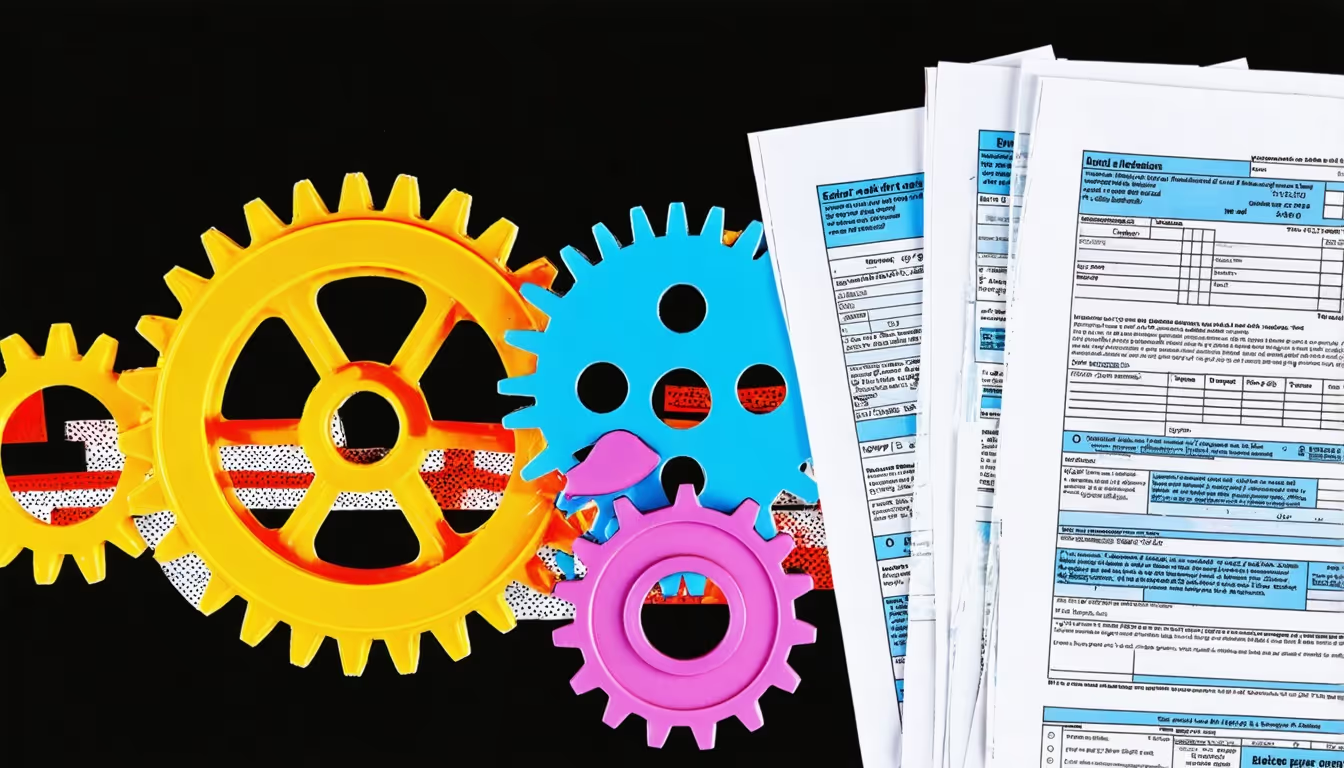Discover how AI agents automate deposition summary creation, saving litigation attorneys time and boosting efficiency in legal document processing.
Litigation attorneys nationwide face an impossible choice: spend countless billable hours manually creating deposition summaries or risk missing critical testimony buried in transcript mountains. This document overload creates bottlenecks in case preparation, increases costs, and potentially compromises legal strategy.
Datagrid's specialized AI technology offers a solution by automating the deposition summary process, transforming how attorneys handle this critical but time-consuming task.
Definition of a Deposition Summary
What Is a Deposition Summary?
A deposition summary boils down sworn testimony into an accessible format highlighting key facts, statements, and admissions relevant to a case.
Role of Summaries in Legal Strategy
These concise records allow attorneys to quickly reference critical information without drowning in hundreds of transcript pages. They are foundational tools in case preparation, trial strategy, and client updates.
Why Deposition Summarization Is Critical for Litigation Attorneys
Strategic Importance in Litigation
- Trial preparation and quick referencing: Summaries allow attorneys to access key testimony instantly, avoiding the need to comb through lengthy transcripts.
- Internal legal strategy development: They help identify patterns, inconsistencies, and pivotal statements that inform case strategy.
- Presentation to clients and courts: Clear, organized summaries make it easier to communicate crucial facts during hearings or client updates.
They provide attorneys with digestible insights from massive transcripts, allowing them to spend more time analyzing strategy and less time skimming documents.
Common Time Sinks in Manual Deposition Summarization
1. Time-Consuming Review Process
Manual summarization means reading hundreds of pages per transcript—often multiple times—to ensure nothing is missed.
2. High Volume and Complexity
Legal cases produce extensive, technical transcripts. Sifting through them to extract only relevant insights requires sharp focus and time.
3. Accuracy and Objectivity Pressure
Misrepresenting a statement—even slightly—can jeopardize the legal outcome. Maintaining accuracy and neutrality under time constraints is a constant struggle.
4. Identifying What Matters Most
Spotting case-critical facts among irrelevant details demands deep knowledge of the case and years of experience—something not all staff can consistently offer.
5. Resource Drain
Manual summary creation often pulls attorneys and paralegals away from higher-value tasks. This can lead to added labor costs and inconsistent quality.
6. Workflow and Organization Gaps
Summaries lacking proper formatting or structure can create confusion within legal teams, especially when multiple cases or attorneys are involved.
How AI Agents Automate Deposition Summary Creation
AI technology transforms the deposition summary process through advanced natural language processing and machine learning algorithms that digest, analyze, and distill information at unprecedented speed and consistency.
What AI Brings to Litigation Attorneys
AI-powered deposition tools offer several breakthrough capabilities:
- Rapid Processing: AI analyzes hundreds of transcript pages in minutes instead of hours or days.
- Consistency and Accuracy: AI algorithms apply uniform rules across every summary, reducing human error and bias. This consistency ensures key testimony gets properly flagged regardless of transcript length.
- Customizable Focus: Modern AI tools can zero in on specific legal issues, parties, or topics, ensuring summaries highlight what matters most to your case strategy.
- Cost Efficiency: By automating summarization, firms cut labor costs while freeing legal teams to focus on higher-value work like strategic analysis and client counseling. AI can streamline document-intensive tasks, leading to significant efficiency gains across the organization.
Mechanics of AI Automation
The AI-driven summarization process works through several sophisticated phases:
- Transcript Ingestion: The system processes full deposition transcripts in various formats and normalizes the data for analysis.
- Natural Language Processing: NLP algorithms analyze the text to identify key information, themes, and contextual relationships.
- Information Extraction: The AI pulls out critical elements like dates, names, events, and key statements, mapping their connections to case issues.
- Summary Generation: Using extracted information and identified themes, the AI creates a concise, structured summary prioritizing the most relevant content.
- Output and Integration: The final summary includes source citations linking back to the original transcript for verification and deeper dives.
This automated approach offers more than just time savings. By analyzing deposition content at scale, AI can uncover patterns and connections that are often overlooked during manual review—delivering strategic insights in high-stakes litigation.
The same advanced capabilities used to streamline legal workflows are also being applied in industries like construction, where Datagrid’s AI automates submittal processes. This highlights the technology’s versatility in managing complex, detail-heavy tasks across sectors.
Datagrid for Legal Professionals
Legal professionals manage vast document repositories, complex case information, and time-sensitive workflows. Datagrid's AI-powered platform delivers specialized solutions for law firms and legal departments:
- Intelligent Document Review: Automate PDF conversion and process thousands of legal documents simultaneously, extracting key clauses, obligations, dates, and parties from contracts, case files, and discovery materials with unprecedented speed and accuracy.
- Case Research Enhancement: Deploy AI agents to analyze case law, statutes, and legal precedents across multiple jurisdictions, identifying relevant authorities and legal arguments tailored to your specific matters.
- Due Diligence Acceleration: Streamline M&A and transaction due diligence by automatically reviewing and categorizing corporate documents, identifying potential risks, and creating comprehensive summary reports.
- Contract Management Automation: Extract critical terms, renewal dates, and obligations from your contract portfolio, enabling proactive management of deadlines and compliance requirements.
- eDiscovery Optimization: Reduce discovery costs by having AI agents pre-screen documents for relevance, privilege, and confidential information before attorney review, significantly reducing billable hours spent on document review.
- Legal Brief Preparation: Analyze past filings, court decisions, and opposing counsel arguments to generate comprehensive research summaries that accelerate brief writing and legal argument development.
- Compliance Monitoring: Stay ahead of regulatory changes with AI agents that continuously scan for new regulations and compare them against your clients' practices or corporate policies to identify potential exposure.
By implementing Datagrid in your legal practice, your attorneys can focus on high-value legal analysis and client counseling while AI handles the document-intensive tasks that traditionally consume valuable billable time and resources.
Simplify Legal Tasks with Datagrid's Agentic AI
Don't let data complexity slow down your team. Datagrid's AI-powered platform is designed specifically for teams who want to:
- Automate tedious data tasks
- Reduce manual processing time
- Gain actionable insights instantly
- Improve team productivity
By optimizing data with AI, you can streamline your workflows and enhance your team's efficiency.
See how Datagrid can help you increase process efficiency.
Create a free Datagrid account













